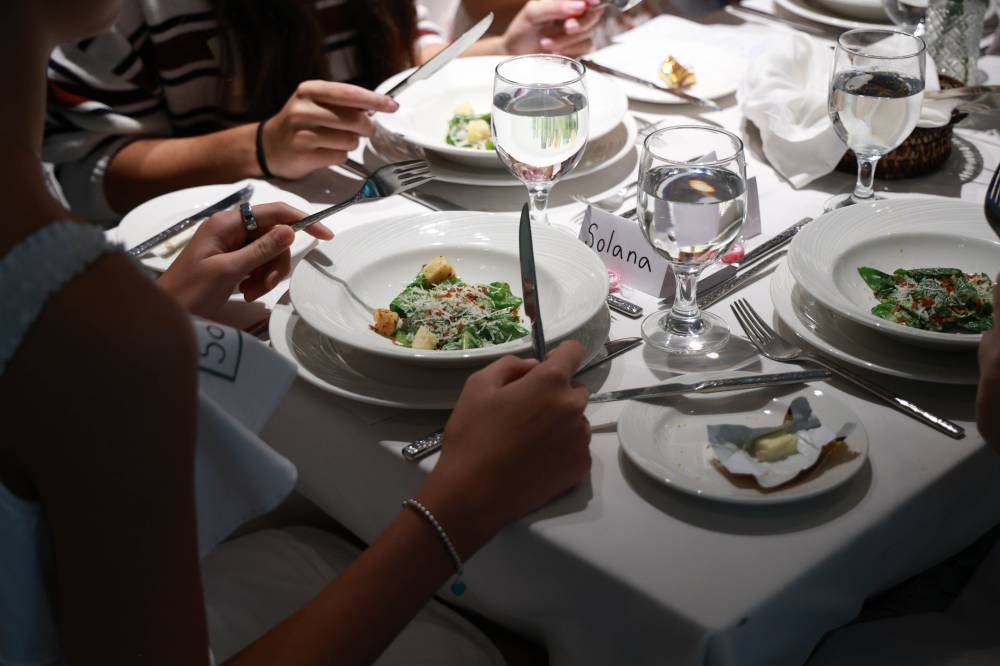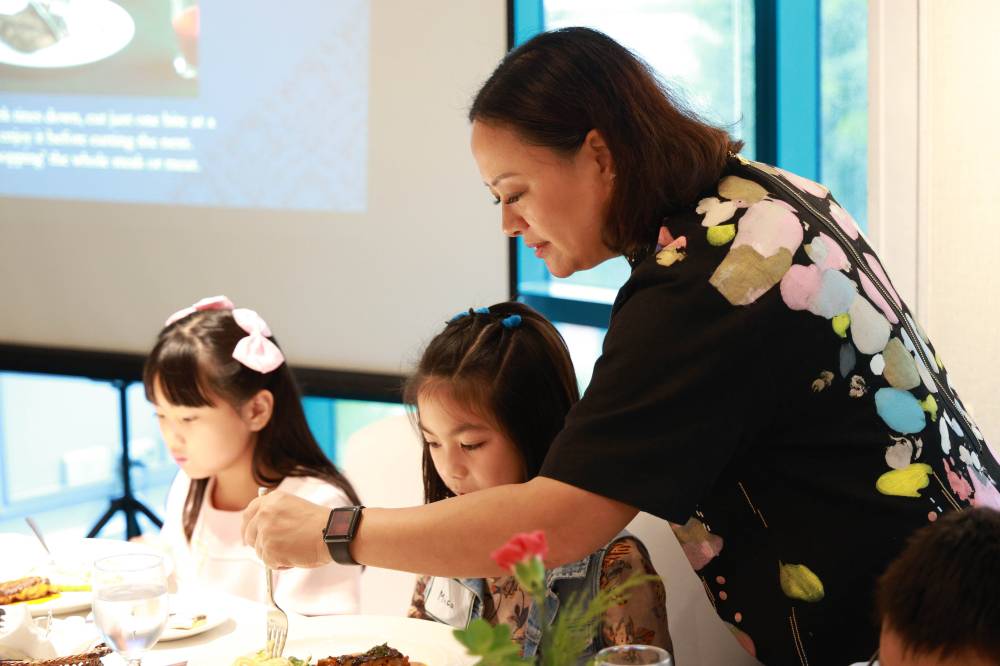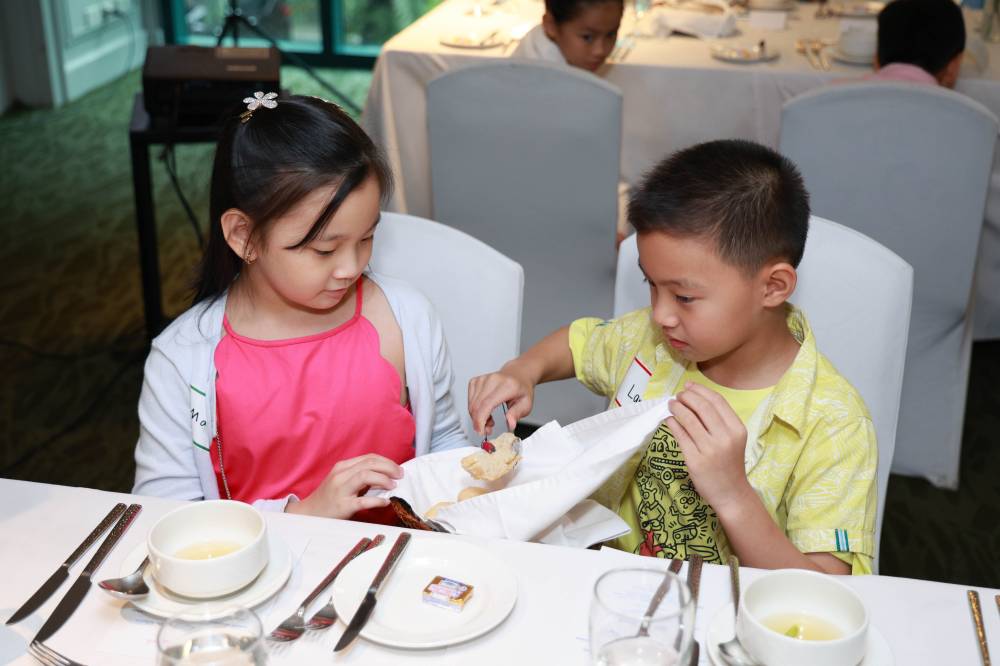In social graces we trust

“Manners are a sensitive awareness of the feelings of others. If you have that awareness, you have good manners, no matter what fork you use” –Emily Post
In a world that often feels hurried and distracted, etiquette is sometimes dismissed as a set of outdated rules. It is underused yet remains essential. It must be taught especially to the young, who will carry it forward as future parents, business leaders, founders, and citizens who shape our nation.
This September, as we shine a light on social and mental issues, we pause to reflect on the value of kindness in our interactions. I am reminded that the essence of social graces is not formality but empathy. Kindness, respect, and attentiveness are more than manners, they are lifelines.
A sense of belongingness
I was reflecting on this at a recent social graces class I conducted, where one of the lessons that day was simple—how to pass a bread basket at the table. The instruction was clear: Before you take a roll for yourself, you first offer it to the person beside you.
On the surface, it seems like a small ritual. But in that gesture lies something profound. You are reminded to notice another before serving yourself, to think beyond your own comfort, and to recognize another’s presence and needs.
There was a time in my teens when I didn’t quite feel I belonged. My mother was abroad, while my father was consumed by work and struggles. I dreaded holidays like Christmas. My best friends’ families, however, welcomed me as their own. One Christmas, after lunch with her family, a friend handed me an envelope from her father, which had photos of me with them. That small, tender gesture stayed with me.
Looking back, it wasn’t just kindness. It was the quiet grace of making someone feel they belong—a gift we all have the power to give.
Imagine if we all lived like that, beyond the dinner table. If we looked up from our own busyness to ask quietly, “How are you? Do you need anything?” These are not grand acts, but they are acts of acknowledgement. They tell someone, I see you and you matter.
The art of empathy
Social graces are, in many ways, an education in empathy. Consider the etiquette of listening and giving someone your full attention without interrupting, without glancing at your phone. Or the etiquette of introductions, ensuring no one is left awkwardly unnamed in a group and practicing inclusivity. Or the etiquette of serving, making sure the guest is settled before taking your first bite or saying “thank you” and making eye contact with the person who served you. Each of these rituals, when stripped to their essence, is a practice of dignity and care.
And dignity is not a small thing. When they feel seen and valued, even in the smallest ways, they are more likely to reach out and to stay connected.

Hospitality is a quiet way to uplift, support, and bring people together. To open a home gracefully is to say, “You are welcome here as you are.” A thoughtfully prepared snack or remembering one’s preference, like having sparkling water over still… these quiet details carry an unspoken message of belonging. And belonging, psychologists tell us, is one of our deepest human needs. To belong is to believe there is a place for you in the world.
Even silence has its etiquette. Just as we teach children not to speak over others or to pause before answering, we can learn to sit in quiet companionship with others. Sometimes the greatest grace is presence and simply just being there.
Social graces, when practiced sincerely, create environments where kindness is the norm, where empathy is instinctive, and where people are less likely to feel forgotten.
It’s all in the little things
If etiquette teaches us anything, it is that the smallest details matter. To quote German architect Ludwig Mies van der Rohe, “God is in the details.” It encompasses the way we make space at the table or put their name on a placecard. The way we greet a neighbor or even a stranger while taking a walk reflects our regard for others. The way we notice when a friend has gone silent and we reach out with a simple “hello.” These seemingly minor acts weave the texture of community. They can make the difference between someone feeling invisible or seen, tolerated or cherished.
Let us look at etiquette with new eyes—not as a rigid formality but as daily opportunities for compassion. To teach a child about posture is to teach them to carry themselves with quiet confidence; to guide a smile, we show how kindness makes others feel at ease; to pass the bread basket first is to teach them to look after others. To remember to say “thank you” and “you are welcome” is to remind ourselves that we are connected. To write a note of gratitude, to offer a seat, and to lower our voice or the volume of our phones in shared spaces are acts of civility and are also acts of care.

The grace of kindness is timeless. It costs nothing yet it is priceless. In a polished dining room or a humble kitchen table, in a formal gathering or even in the simplest daily encounters, social graces whisper the same truth—your presence matters to me.
And perhaps, in a world where so many silently wonder if their presence matters at all, the truest practice we can offer is to affirm that they do—not just this month, but every day.
A practical guide to social graces
The welcome or cocktail hour: When meeting new people, shake hands with your right hand, make eye contact, and offer a warm opening line to connect.
Entering a room: Keep a good posture, smile, and acknowledge those present.
At the table: The gentleman must pull out a chair for a lady before sitting. Place your napkin neatly on your lap and wait for the host or others to begin before eating. Remember that the bread is placed on the left side, while drinks are placed on the right. No elbows on the table. Chew slowly and never speak with a full mouth.
Polite practice: Say “please” and “thank you,” respect shared spaces, be mindful of cultural differences, and know your cutlery gestures—from pauses to finishing signals.
Closing grace: Always thank your host before leaving, and mention a moment that made the occasion memorable.

















